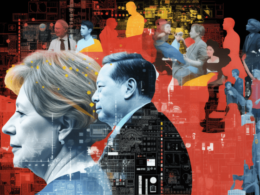Poe, the multi-AI chatbot aggregator launched by Quora in late 2022, has gained popularity by offering users a single interface for accessing multiple competing large language models (LLMs).
In a recent move, Poe has introduced a new monetization model that allows third-party creators to earn revenue from building and offering their own chatbots on the platform.
Quora CEO Adam D’Angelo, in an exclusive phone interview with VentureBeat, shared his vision for Poe’s future and explained the reasoning behind these developments.
“We’re coming into this market, we’re lowering the barrier to entry, we’re gonna enable this huge ecosystem of AI products to flourish,” said D’Angelo.
“[Poe] is going to increase diversity and the breadth of applications that are available to everyone.”
D’Angelo outlined two key moves by Poe: allowing bot makers to earn money from their creations and opening up API access for the integration of new natural language models.
The changes are already live, with creators already being paid and new models being integrated.
Poe’s revenue sharing model ensures that a portion of payments from users to Poe is passed on to the creators, providing an economic framework to support the costs of developing specialized bots.
The monetization model has two main components:
- Poe shares revenue from its $20 a month subscription when a bot leads a user to sign up for the app
- Bot creators will soon be able to set per-message fees, earning income for each user interaction
Poe plans to extend this monetization structure to provide additional ways for bot developers to earn revenue, such as training, evaluating, and marketing expenses.
In addition to reducing barriers like infrastructure costs, Poe aims to spur innovation by allowing easy integration of different language models.
“Our API is totally open-ended. Anyone can go and hook up a new model,” explained D’Angelo.
This flexibility enables third parties to connect custom or tuned models, fostering diversity in the ecosystem.
“We want to help [smaller, niche providers] bring what they create to the mass market to everyone around the world,” D’Angelo emphasized.
“Especially because of these inference costs that are kind of underneath serving these models.”
Poe’s mission is to deliver more diversity and choice to users by supporting specialized creators and their unique offerings.
By empowering external creators and apps, Poe believes it can accelerate development in areas like specialized models and vertical use cases, resulting in increased diversity and competition that would improve access and utility for users worldwide.
D’Angelo acknowledged the rapid pace of the industry and expressed hopes that the API and monetization tools provided by Poe will not become a bottleneck for progress but instead foster continued innovation.










